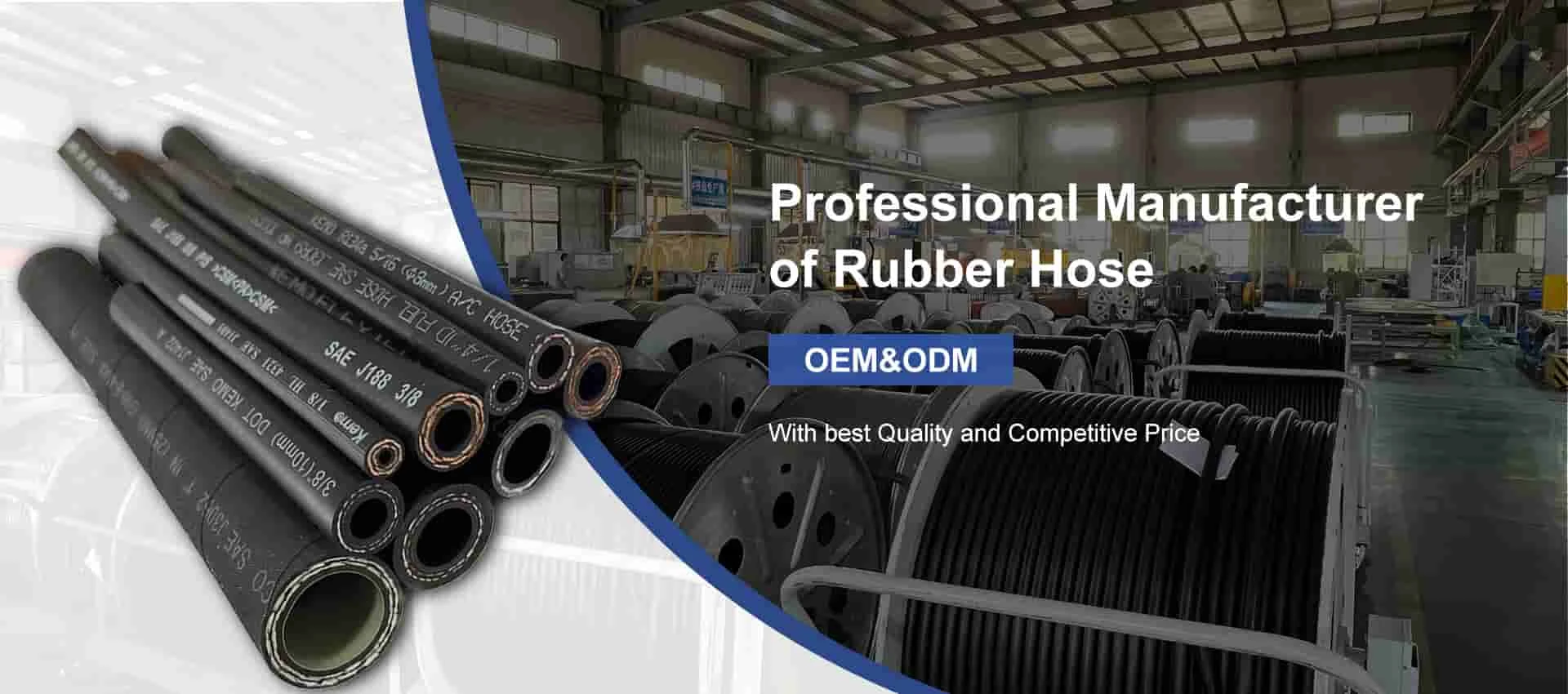flexible fuel line
سېنتەبىر . 25, 2024 18:32 Back to list
flexible fuel line
Understanding Flexible Fuel Lines Importance, Benefits, and Maintenance
Flexible fuel lines play a crucial role in the operation and safety of modern vehicles, particularly those designed to accept alternative fuels, such as ethanol-blended gasoline and biodiesel. These hoses are specifically engineered to withstand the high pressures and corrosive properties of different fuel types, making them essential components in the fuel delivery system. In this article, we will delve into the significance of flexible fuel lines, their advantages, and tips for maintenance to ensure longevity and optimal performance.
The Importance of Flexible Fuel Lines
Flexible fuel lines serve multiple purposes within a vehicle's fuel delivery system. They connect the fuel tank to the engine, facilitate the transfer of fuel, and help manage the pressure within the fuel system. Given the advancements in automotive technology and the increasing popularity of alternative fuels, flexible fuel lines must often adapt to various chemical compositions, temperatures, and pressures.
One of the defining features of flexible fuel lines is their ability to bend and flex, which allows for easier routing in the often-constrained spaces of an engine compartment. This flexibility not only aids in installation but also minimizes stress on the connections, reducing the likelihood of leaks or failures. Moreover, as vehicles become more sophisticated with integrated engines and hybrid systems, the demand for versatile and adaptable fuel lines has never been greater.
Benefits of Using Flexible Fuel Lines
1. Versatility Flexible fuel lines can accommodate a range of fuel types, making them suitable for vehicles that run on gasoline, ethanol blends, and other biofuels. Their chemical resistance ensures that they won’t degrade over time, which is essential for maintaining fuel purity and engine performance.
2. Ease of Installation The pliable nature of these hoses allows for easier installation in tight spaces. This can save time and labor costs in both manufacturing and repair settings.
3. Reduced Risk of Leaks The design of flexible fuel lines reduces the chance of kinks or bends that might occur in traditional rigid lines. This feature minimizes the risk of fuel leaks, ensuring safer operation and preventing environmental hazards.
4. Temperature Resistance Flexible fuel lines are engineered to withstand a broad range of temperatures. Whether the vehicle is operating under hot summer conditions or frigid winter temperatures, these hoses maintain their integrity and performance.
flexible fuel line

5. Enhanced Durability Many flexible fuel lines are constructed from advanced polymers or reinforced materials that offer superior resistance to wear, punctures, and chemical erosion. This durability translates into a longer lifespan, reducing the need for frequent replacements.
Maintenance of Flexible Fuel Lines
To maximize the lifespan and efficiency of flexible fuel lines, regular maintenance is essential. Here are some practical tips for vehicle owners
1. Routine Inspections Periodically inspect your fuel lines for signs of wear and tear, such as cracks, leaks, or warping. Early detection can prevent more significant issues down the line.
2. Check Clamps and Connections Ensure that all clamps and fittings are secure and in good condition. Loose connections can lead to leaks, while corroded fittings can compromise the integrity of the fuel line.
3. Avoid Extreme Temperatures Whenever possible, park in shaded or covered areas during extremely hot weather and ensure proper insulation in cold climates to protect the fuel lines from damage.
4. Follow Manufacturer Guidelines Always refer to the vehicle’s owner’s manual for specific maintenance recommendations regarding fuel lines and other components. This ensures compliance with manufacturer standards and prolongs the life of the system.
5. Use the Right Fuel Adhering to the recommendations for fuel type can prevent damage to flexible fuel lines, ensuring they remain in optimal condition.
Conclusion
Flexible fuel lines are essential components of modern vehicles, offering versatility, safety, and durability in fuel transfer systems. Their ability to handle various fuels while being resistant to leaks and temperature fluctuations makes them invaluable in today’s automotive landscape. Regular maintenance and inspections can further enhance their performance and longevity, ensuring that vehicles operate efficiently and safely. As the automotive industry continues to evolve with a focus on sustainability, the role of flexible fuel lines will only become more vital.
